Home>Access to abortion in Europe: persistent inequalities
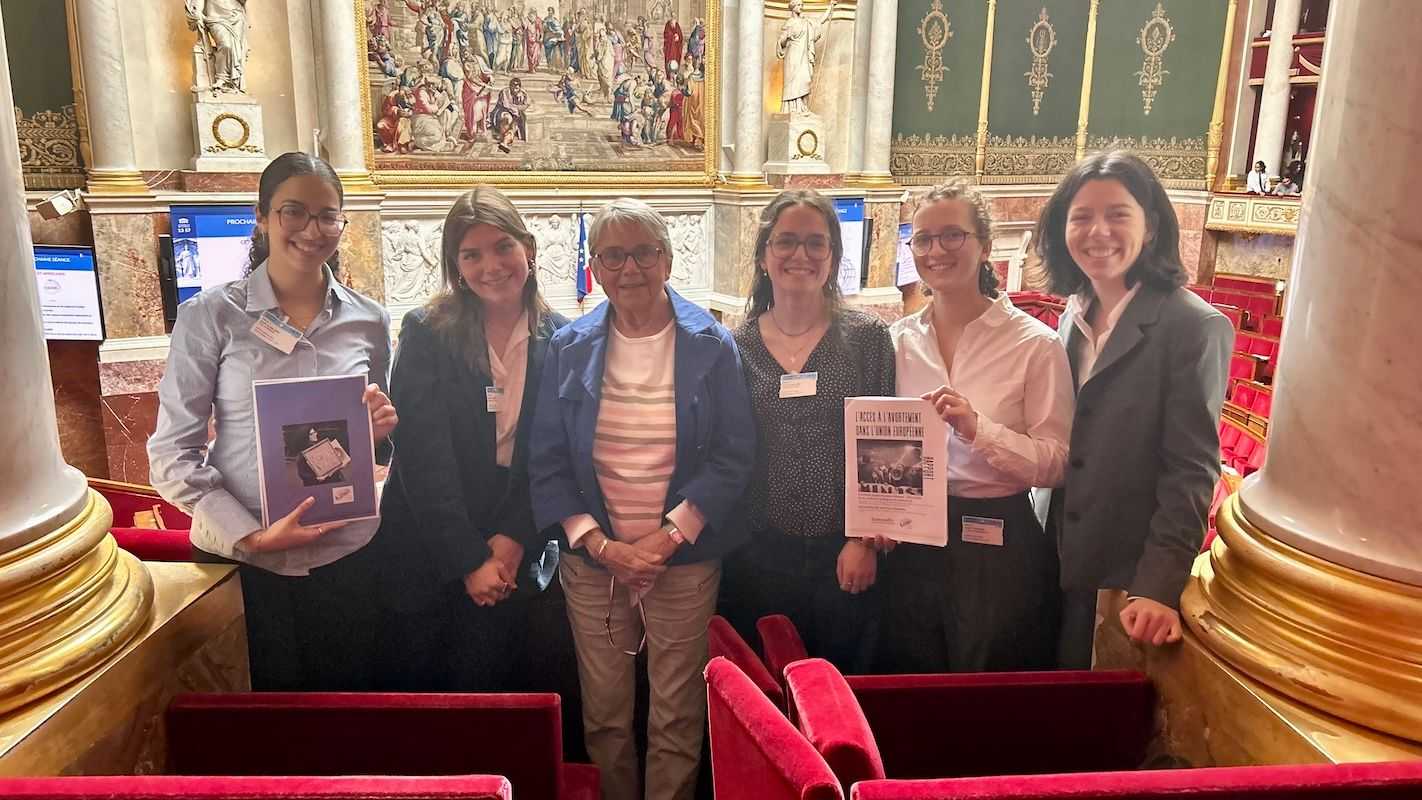
10.06.2025
Access to abortion in Europe: persistent inequalities
At a time when sexual and reproductive rights are being called into question in a number of countries around the world, eight students from Sciences Po's Gender Equality and Public Policy Certificate programme, accompanied by the French Association of Former Women Members of Parliament (MPs) [in French: Association des Anciennes députées], have studied access to voluntary termination of pregnancy in the European Union. Their report [available in French at this stage] offers an in-depth comparative analysis of the situation in eight EU Member States. It highlights the obstacles that still stand in the way of an effective right to abortion, and sets out concrete proposals for a coordinated response at European level.
Read the report produced by Fleurine Bey, Louise Germanicus, Rim Kannada, Charlotte Laigre, Audrey Milcent, Gabriela Peña Mancero, Margaux Rousseau and Anne-Sophie Tietmeyer :
REPORT (IN FRENCH) : L'accès à l'avortement dans l'union européenne (PDF, 21 Mo)
A widely recognised right, but unequal access
Today, the right to abortion is recognised in the majority of European Union countries: of the 27 EU member states, 25 authorise abortion without restrictive conditions. However, there is still a gap between the legal recognition of abortion and its actual accessibility. In a number of regions of the continent, women come up against many obstacles: medical deserts, invocation of the conscience clause by doctors, restrictive time limits, social stigmatisation, and so on.
Contrasting legislations
In their report, the students took an in-depth look at eight European countries chosen for the diversity of their legislative frameworks and socio-political contexts.
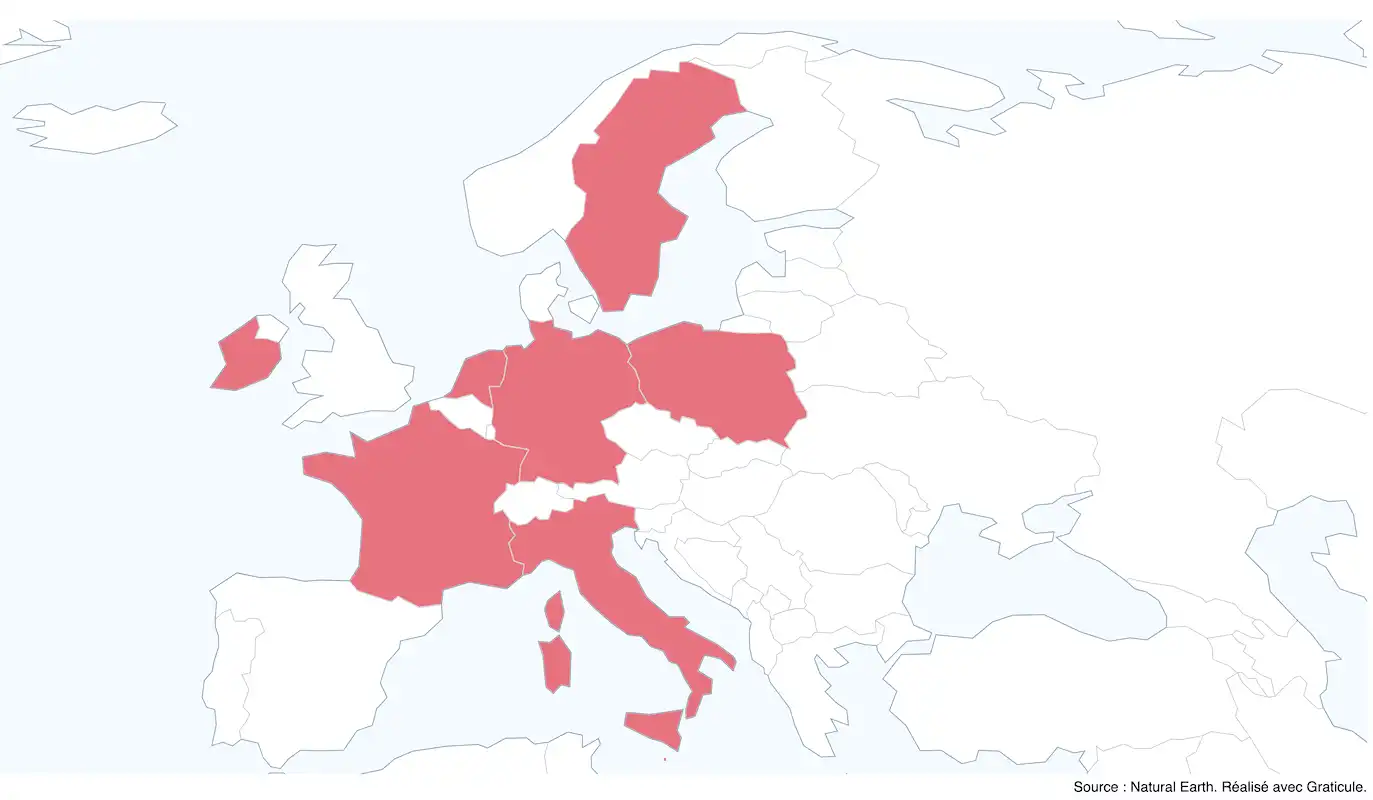
- The Republic of Malta, an archipelago of 565,000 inhabitants, is the only country in the European Union to criminalise abortion in almost all circumstances, including in cases of rape or incest. The Maltese Penal Code states that any person who causes the abortion of a pregnant woman, with or without her consent, as well as any woman who causes or has consented to her own abortion, is liable to a prison sentence of between eighteen months and three years (article 241). Since 2023, a law has allowed women to terminate a pregnancy only if their life is in danger and the foetus is not viable.
- Ireland, a republic of 5 million inhabitants, held a referendum in 2018 on access to abortion: over 66% of the Irish population voted to remove the ban on abortion from the constitution. The Thirty-sixth Amendment to the Irish Constitution now authorises the law to regulate abortion, via the Health (Regulation of Termination of Pregnancy) Act. Since then, abortion has been authorised on request up to 12 weeks of pregnancy.
- Sweden, a kingdom of almost 11 million people, is often cited as a progressive model in terms of access to and protection of sexual and reproductive rights. Since 1974, the Lag (1974:595) om abort law has allowed women to terminate a pregnancy up to the 18th week, without having to justify their decision. This right has been incorporated into the Swedish Public Health Code. Furthermore, Swedish legislation does not recognise a conscience clause specific to abortion: healthcare staff therefore do not have the right to refuse to perform an abortion if it is part of their duties to do so.
- The Kingdom of the Netherlands, a country of 18 million inhabitants, has one of the longest abortion waiting periods in the world. Abortion has not been an offence in the Netherlands since 1981, when the Wet afbreking zwangerschap (law on voluntary termination of pregnancy) was passed. Since 1984, women have been able to have an abortion on request up to 22 weeks of pregnancy.
- The Republic of Poland, a country of 37 million inhabitants, severely restricts access to abortion. After the fall of the Communist regime, a law on ‘family planning, the protection of the human foetus and the conditions of admissibility of abortion’ came into force in 1993. Today, abortion is only permitted in two specific cases: when there is a danger to the life of the pregnant woman, or when the pregnancy is the result of a criminal act such as rape or incest. Assisting a woman to have an abortion is also prohibited and punishable by imprisonment.
- In Italy, a republic with a population of 59 million, abortion is still enshrined in the Criminal Code (article 545), but it is not punishable as long as it is carried out within the framework defined by the law Legge 194, which has been in force since 1978. Women can terminate their pregnancy on request for up to 90 days (approximately 12 weeks) without having to justify any particular reason. Law 194 also provides a framework for conscientious objection, which allows healthcare professionals to refuse to perform or participate in an abortion for reasons of conscience: according to data from the Italian Ministry of Health (2021), more than 6 out of 10 gynaecologists are conscientious objectors.
- In France, abortion was introduced by the 1975 law known as the ‘Loi Veil’, named after the Health Minister who brought it before the National Assembly. This law authorised the voluntary interruption of pregnancy up to 10 weeks of pregnancy. Subsequently, abortion was gradually decriminalised, and its regulation was transferred from the Criminal Code to the Public Health Code. Article L2212-1 sets out the general conditions for access to abortion, which can now be performed up to the 14th week of pregnancy, and provides a framework for the ‘right of conscience’. In 2024, France enshrined the freedom to have an abortion in its Constitution.
- In Germany, the most populous country in the European Union with 83 million inhabitants, abortion is still enshrined in paragraph 218 of the Criminal Code (Strafgesetzbuch, StGB). However, the law provides for exceptions that allow women who so wish to terminate their pregnancy without criminal sanction. During the post-war period, Germany was divided: in the western Federal Republic, the Criminal Code strictly regulated abortion, while in the eastern German Democratic Republic, a law had made abortion legal and available on request up to the 12th week of pregnancy since 1972. Finally, after reunification in 1995, a ‘Pregnancy Conflicts Act’ reformed the Criminal Code (Reform des §218 StGB). Today, abortion is permitted up to 12 weeks of pregnancy, provided that the woman has first received a compulsory counselling interview, and that she then observes a 3-day reflection period before proceeding with the procedure.
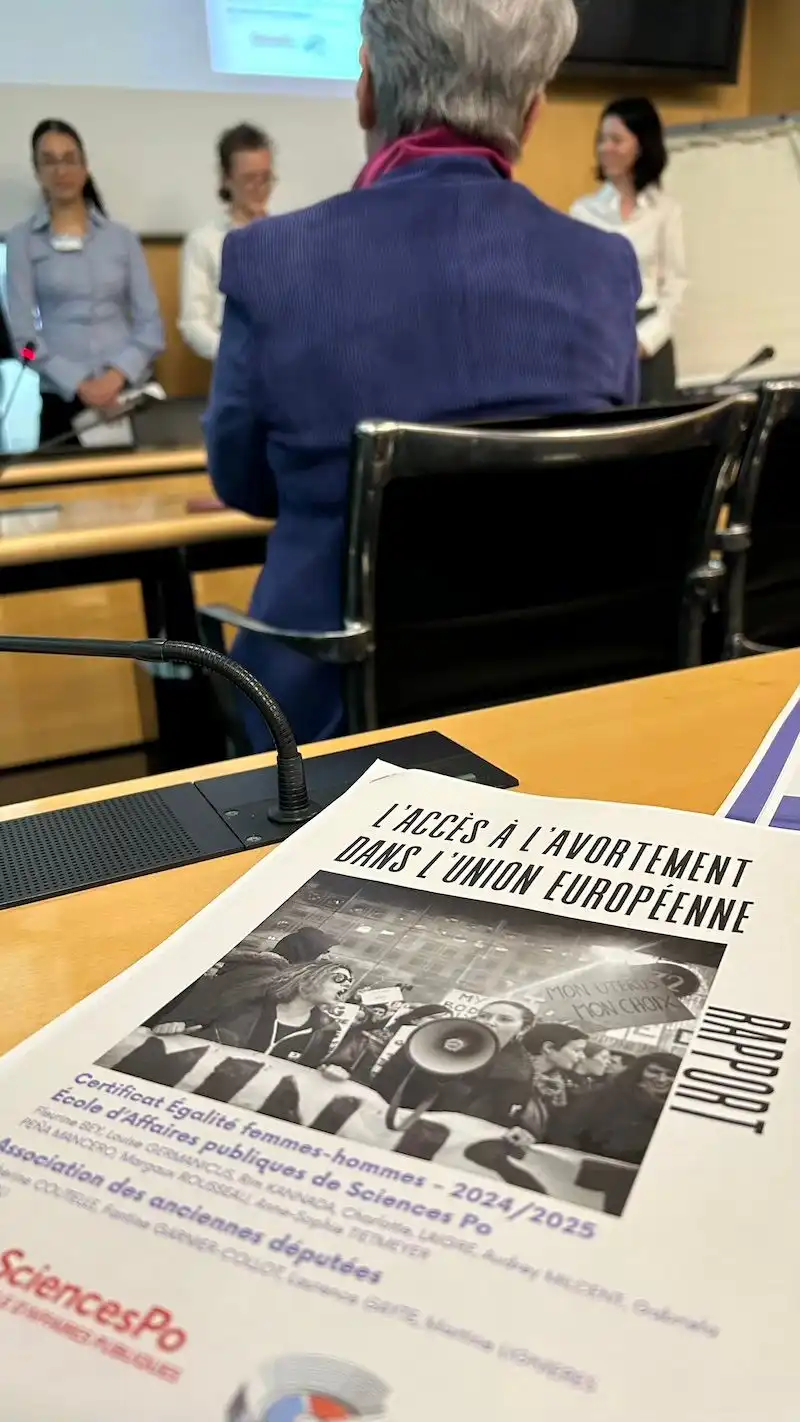
This overview highlights the many different approaches and legislative frameworks that currently govern the right to abortion in the countries of Europe. It highlights the persistent inequalities in access to abortion within the European Union.
Realities on the ground
The report written by students of the Gender Equality and Public Policy Certificate for the French Association of Former Women Members of Parliament (MPs) also gives a voice to those working in the field: researchers, medical doctors, activists and citizens share their experiences of access to or obstacles to abortion. These accounts highlight the eminently political dimension of the right to abortion and the key role played by women's rights movements.
Proposals for a European response
In the light of these findings, the authors of the report call for an ambitious European response. The report makes a number of concrete recommendations, including:
- introduce the right to abortion in its Charter of Fundamental Rights,
- guarantee a minimum threshold for access to abortion in all Member States, which could be set at 12 weeks of pregnancy,
- provide a framework for the conscience clause,
- strengthen sex education and awareness-raising campaigns,
- support networks of local and transnational actors and associations
involved in defending reproductive rights, - and make women's bodily autonomy a European political priority, a human rights issue, etc.
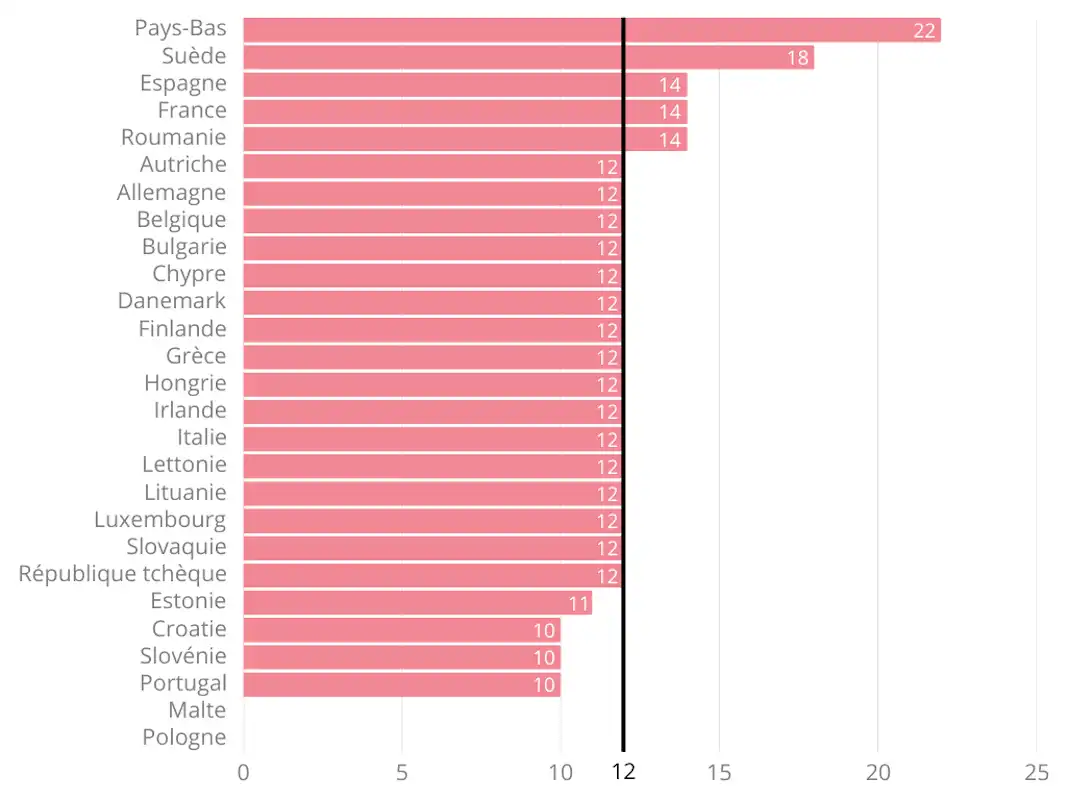
The European Citizens' Initiative (ECI) campaign My voice, My choice, launched in 2023, has collected over one million signatures. The European Commission will therefore examine the proposal to provide financial support to EU Member States that perform abortions, in accordance with their national legislation, for women in Europe who still do not have access to safe and legal abortion in their country of residence.
Abortion: a fundamental human right
This report was presented in the French National Assembly on 15 May 2025. It proposes considering abortion as a human right and putting it at the centre of the European political agenda, to guarantee socio-economic equality between Europeans.
The French Association of Former Women Members of Parliament (MPs), through two of its members, Laurence Gayte, former MP for the Pyrénées-Orientales, and Martine Lignières-Cassou, former MP for the Pyrénées-Atlantiques, welcomed this student report with enthusiasm:
"This report proves that Europe's young people are ready to defend their rights, formulate ambitious proposals and promote an inclusive vision of Europe. It is up to us, the leaders of yesterday and today, to open the doors of the institutions to these new voices."
"This report proves that Europe's young people are ready to defend their rights, formulate ambitious proposals and promote an inclusive vision of Europe. It is up to us, the leaders of yesterday and today, to open the doors of the institutions to these new voices."
Read the report (in French)
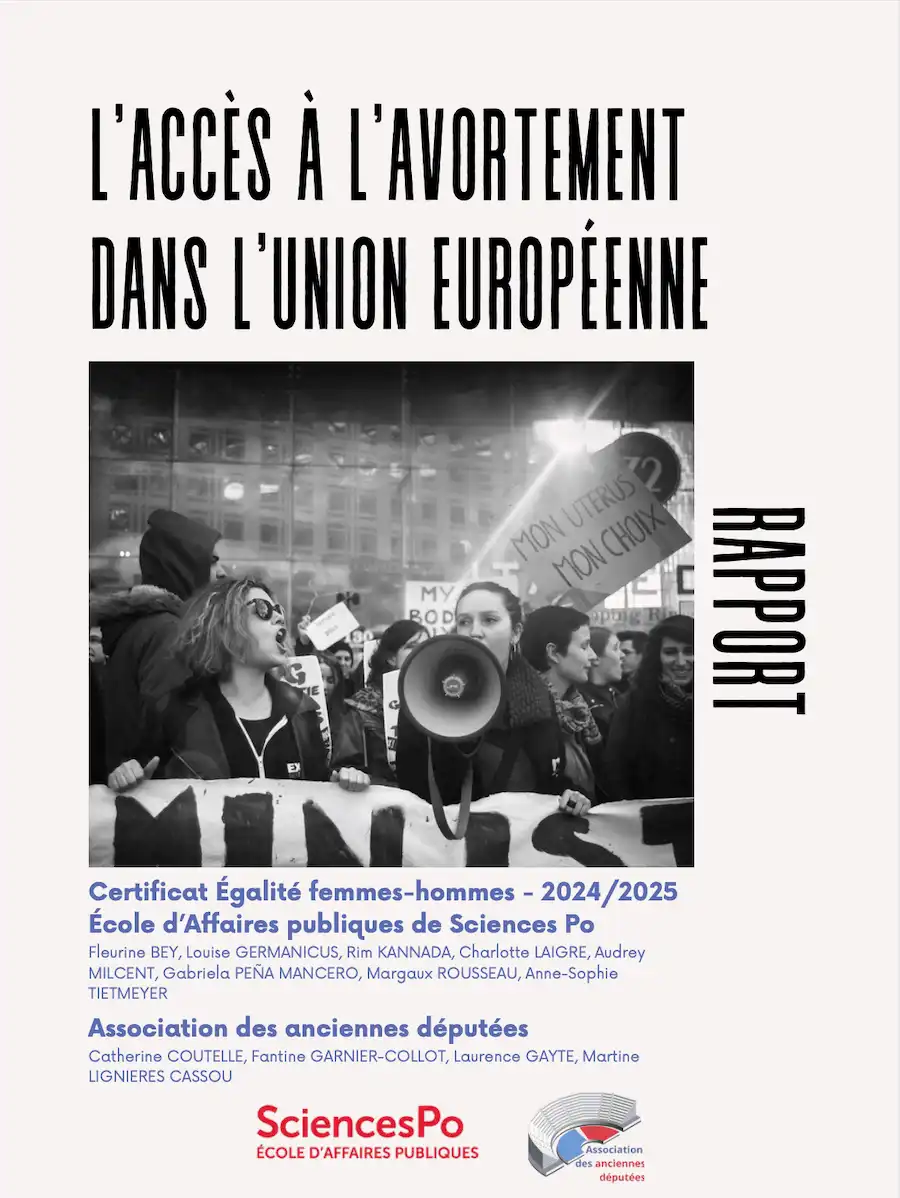
More
- The Gender Equality and Public Policy Certificate is offered in French by the School of Public Affairs and Sciences Po's Gender Studies Programme. It trains first-year Masters students in policies to combat gender inequality and discrimination, learn more on the webpage in French: Certificat Égalité femmes-hommes et politiques publiques
- The French Association of Former Women MPs, in French, Association des Anciennes Députées, is a forum for debate, exchange, information and resources on current issues relating to parity, the place of women in political life and society, and the fight against inequality and violence against women.
Cover image caption: Students present their report on abortion access in Europe in the French National Assembly. (credits: Sciences Po)